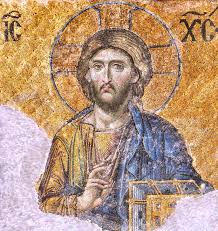Today’s Gospel[1] reminds us vividly that the teaching of Jesus was new, as fresh as new wine. One must wonder, however, precisely in what manner the Gospel is a novelty, how it can be a rupture with what God himself had established in the revelation and worship of Old Testament times? After all, Our Lord often insisted that he was fulfilling the prophecies contained not only in the writings but also in the history of the chosen people. Thus, he is the suffering servant described in heart-rending terms by the prophet Isaiah, but he is also like David, a king, and like Moses, a law-giver, and like Adam a progenitor of the human race: “Truly, I say to you, till heaven and earth pass away, not an iota, not a dot, will pass from the law until all is accomplished.”[2]
More than any other section of the New Testament, the Letter to the Hebrews demonstrates that the religion of ancient Israel, in history and in temple worship, constituted both an authentic religious experience even as it was a prophecy that was realized in Jesus. We confirm this insight every time we recite the Nicene creed: “For our sake he was crucified under Pontius Pilate, he suffered death and was buried, and rose again on the third day in accordance with the Scriptures.” How then, we ask, can something be radically new and yet be in complete continuity with the expectations of the Old Testament?
An answer to this question is implied in that disturbing first reading, in which we read that Saul was chided by Samuel for not utterly destroying the Amalekites.[3] The point is that there is only one God, the God of Israel, so that the pagan gods are false, not gods at all, the worship of which represents a corruption of the religious instinct. Jesus affirms this fundamental datum of the Old Testament, but alters it by radically by separating his kingdom from a specific nation state: “My kingdom is not of this world,” as he told Pilate.[4]
Hence our allegiance to Christ the King is as absolute as that demanded of Saul, but it is now universal, for all peoples. And that is the novelty that many of the contemporaries of Jesus failed to grasp, but in which we rejoice.
[1] Mk 2.18-22.
[2] Matt 5.18.
[3] 1 Sam 15.16-23.
[4] Jn 18.36.

